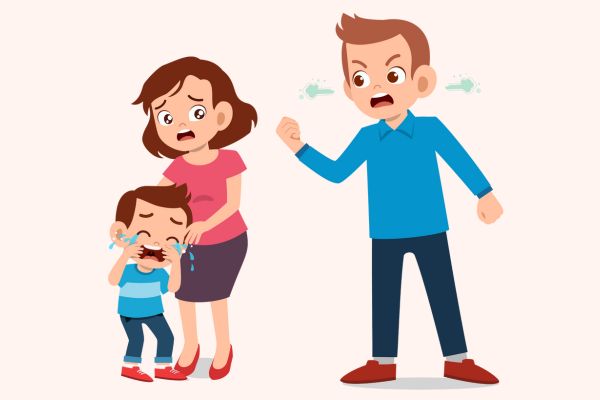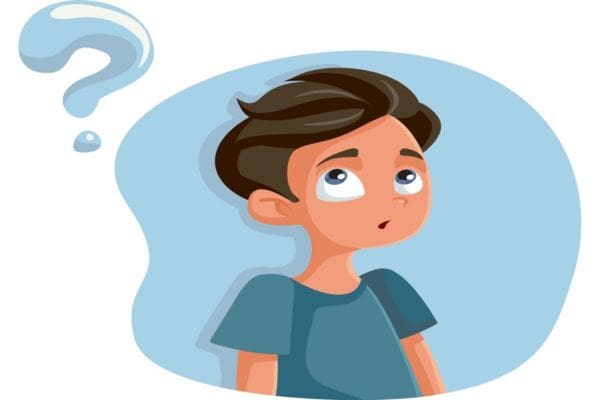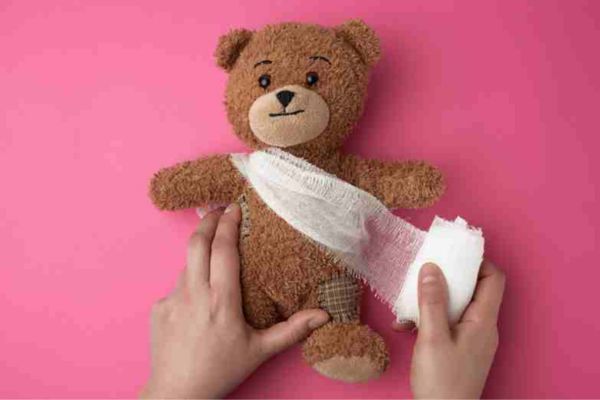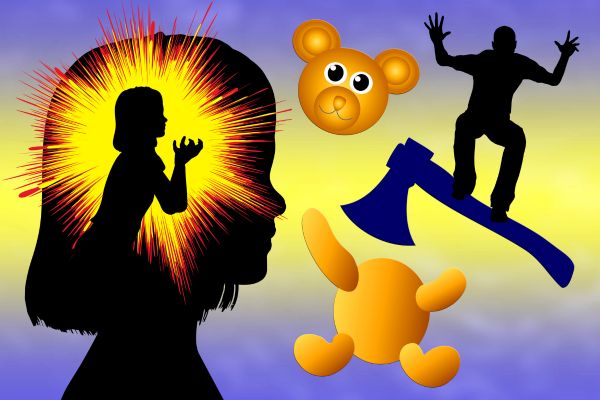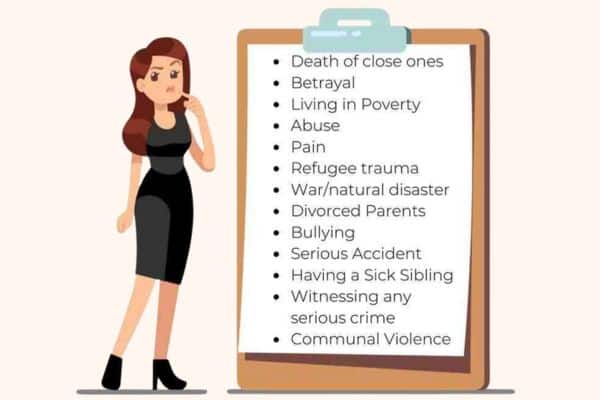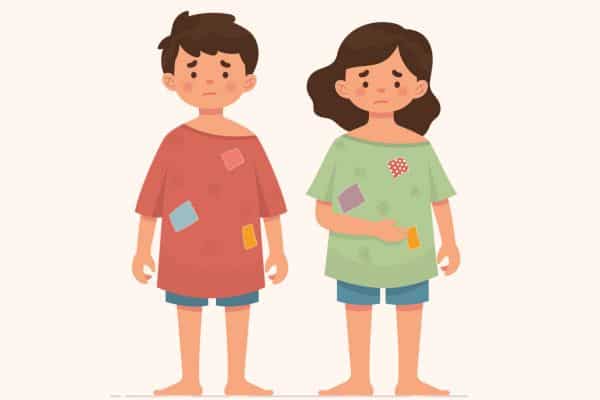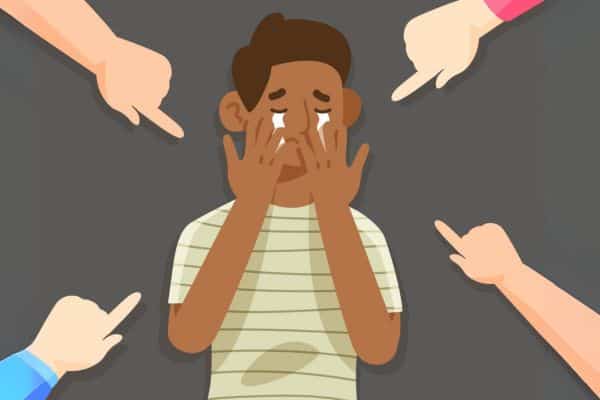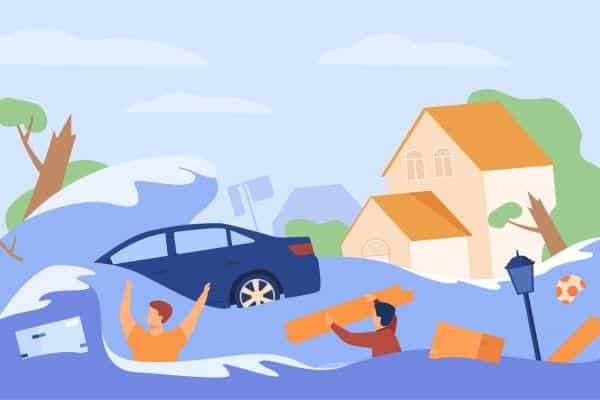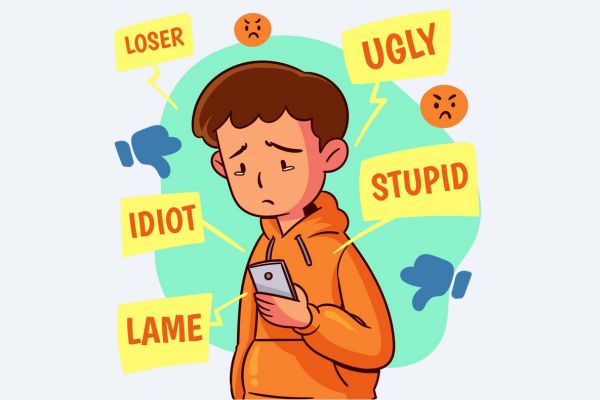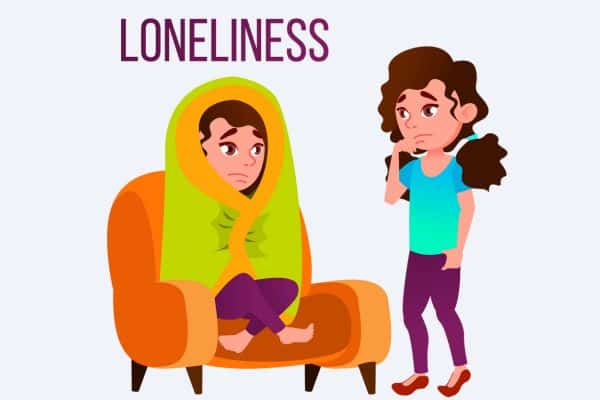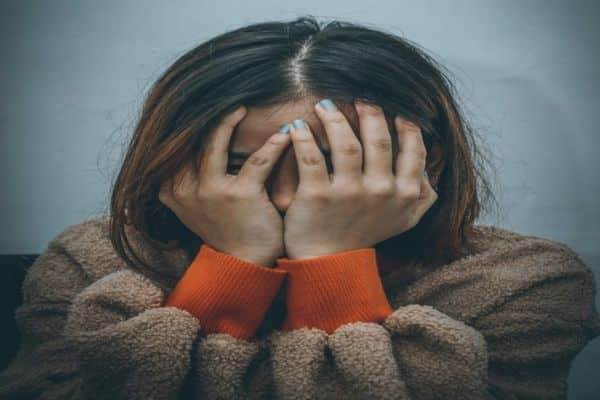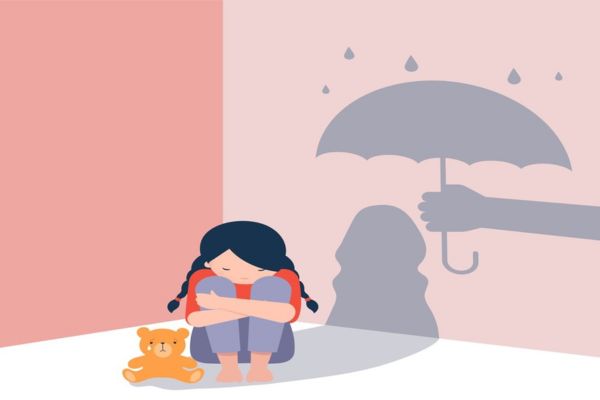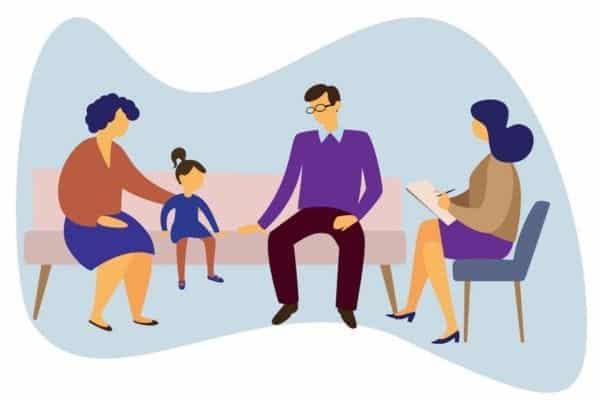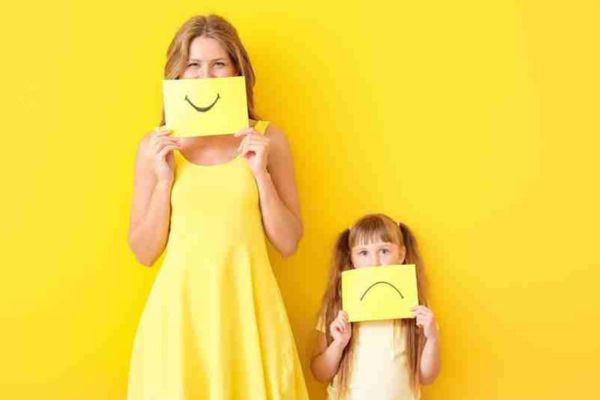The body keeps the score of every trauma – Bessel Van Der Koll
Childhood trauma, as the name suggests, impacts a person in their childhood. A child feels or perceives things differently unless parents and caregivers take time to communicate with them.
How many of you have experienced trauma in early childhood? Research says it is a very high percentage. However, these experiences vary for all of us, and the extent or degree of impact is also different.
A few examples of trauma triggering during childhood can be,
– death of a close family member
– parents separating, bullying at home or school
– feeling abandoned and neglected
– sexual abuse
– physical and verbal abuse
– natural calamities like earthquakes, tsunami and more
– witnessing suicide
– witnessing chronic illness
Childhood trauma affects a child when they witness or experience a traumatic event during their childhood. This experience can haunt a person even in their adult life. Children are the softest targets of adults’ inappropriate behaviours or anything worse happening in the family or around them.
As a therapist, I witness many clients coming because they face distress in their present life. Fewer clients come for childhood trauma treatment. They are often unable to link their current psychological pain to past trauma.
What Is a Trauma?
Trauma is a psychological and medical disorder of the mind. It is unbearable and intolerable. It is your mind and body’s response to an extraordinarily distressing or disturbing event that overwhelmed your emotions and destroyed your ability to cope with the incident. Trauma can happen because of a series of ongoing unfortunate events like prolonged illness, experiencing continuous abuse or witnessing the same. It can also be triggered when there is one significant incident, such as car accidents, natural disasters, and more.
Psychological trauma is usually a circumstance where an event overwhelms or exceeds a person’s capacity to protect their psychic well-being and integrity. It is a collision between an event and a person’s resources. The power of the event is greater than the resources available for effective response and recovery.
Trauma may be part of most of us. WHO says one in three women worldwide has experienced physical or sexual violence in their lifetime or both. It is widespread for children to experience either corporal punishment or psychological violence, or both. Traumatic experiences leave traces, though they can be minor or significant, depending on a child’s perception and resilience.
Trauma is an experience that causes one to develop an erroneous belief about oneself. For example, when a child experiences sexual abuse, she may believe that she is terrible and everything that happened was her fault. Her perception may be that the world is not safe. As a result, as an adult, she may have difficulty having intimate relationships. These experiences may become fixed in the body-mind as irrational emotions, blocked energy, and physical symptoms.
Trauma can impact us profoundly, our emotional stability, our ability to enjoy, have an intimate relationship and even our body. Trauma has a deep mind and body connection. Bessel Van Der Kolk, MD, has said it well that our “Body keeps the score” for every distressing event we go through. Healing from trauma requires both mind and the essential role of our body to be addressed. In his book, Dr Bessel has stated that trauma is not an event that happened a long time ago. The traces of what happened then are still present in our body, mind and brain in the present.
How does Childhood Trauma Impact us?
I would like to compare human life and mind to a simple house, split up into different rooms. Each room has its core function; a bedroom for sleeping, a kitchen for cooking, a bathroom for washing, etc. We are comfortable living in a house designed as above. We do not need quick access to pots and pans while in the bedroom or pillows while in the shower. Everything has its place, and the house lives in a perfect balance of equilibrium. Human beings’ internal system works in a very similar way, as every part of us has a particular job to do. Think of your brain as the house. The part of you who excels at your jobs is very different from that who excels as a parent, child, sibling, or friend.
The social part of you contrasts to the part that likes to be left alone. However, there are times in which the different parts of our brain house converse. For example, as you debate whether or not to have a slice of cake, one part of you may scream, “yes, I am going to eat it, yummy”. While another may rationalise that “I am on a diet!!!”. Do you hear these internal voices talking to you?
Houses are designed with walls between each room to ensure privacy and a clear divide in each space’s purpose, significant areas like bathrooms and other rooms.
When we survive childhood traumas, we create barriers or doors that block us from accessing our pain and secrets. Many feelings, emotions, and body sensations by trauma survivors are considered shameful and highly private. We tend to hide these even from ourselves.
In our house, we are usually able to travel from one room to another with ease. However, what if we have severe childhood trauma such as physical abuse, verbal abuse, sexual abuse, emotional abuse, divorce, serious accidents, or rape? These experiences may reduce the human ability to travel effortlessly between different parts of ourselves. The walls and doors in our internal house may be locked up tight and inaccessible.
For example, as a survivor of molestation, my client would continuously move between states of fear and shame, not knowing why she had these emotions. My client seemed to have locked her early sexual abuse memories behind closed doors. Unconsciously, these memories were impacting her family life. When her fear affected her relationship with her daughter, she decided to pursue therapy. Her anxiety around her daughter skyrocketed when she reached my client’s age when my client was abused. She would not allow her daughter to go out alone and had morphed into a demanding and suffocating parent. My client’s behaviour created a lot of tension between herself and her daughter.
When past unconscious memories get triggered, we experience emotions surrounding current events that can appear unwarranted in the eyes of those looking from the outside. Even we may consider our behaviour and think a mystery and may feel confused. Our early life traumatic events often influence our present-day life. Many times we experience the same intensity as in the past as if they were happening now.
To ensure that my client could function again and retain her loving family, she looked towards therapy to resolve her prior emotions of shame and guilt. She worked in treatment to be free from the influence of that underground reservoir of pain. The fumes had been leaking into her present life repeatedly.
Through therapy within a safe environment, she was able to look at the closed room that carried the burden of her pain. As she started opening the door, she realised that the burden was being lifted and detoxified over time little by little. She began reframing her memories to say, “It’s not my fault, I am not dirty, and there is no place for shame and guilt”. During therapy, many of us can see a more open floor plan for our internal house because we feel less ashamed and accept our true selves.
Types of Childhood Trauma
Types of childhood trauma are classified based on the various causes a child may experience in their childhood.
Let’s see them one by one in detail.
- Death of a parent/ caregiver or close family member
Children have a habit of attaching themselves to their parents, guardian, grandparents, or anyone in the family with whom they feel comfortable around. And it is natural for a child to attach to their elders for safety, protection, and support. The death of their loved ones is heartbreaking for any child. It’s challenging for a child to cope with grief, not understanding that they will not see their loved one again. When death takes place in the family, it is essential to talk to your children. Communication is important. Timely attention prevents childhood trauma.
- Betrayal
Children get dependent on their caretakers or anyone else around them they feel comfortable with and start trusting them the most. Apart from caretakers and family members, there may be friends, family friends or schoolteachers, classmates, etc. Whoever they may be, if the child gets betrayed or feels betrayed even in more minor instances, the child may develop mistrust. It may not be severe every time, but if the betrayal level is intense or repetitive. Beyond their tolerance, they may form a trauma.
- Living in Poverty
Living in poverty may not be troublesome for everyone, or else almost half of the world population would suffer from trauma. But yes, living in poverty may significantly impact the child’s behaviour and thought process. The impact may both be positive and negative, depending on the individual. The negative effect may traumatise the child. The regular helplessness, less money, parents being ill-treated or working hard, getting hurt, and much more can cause childhood trauma.
- Abuse
Childhood is the most crucial period in a person’s life. Children encounter many small and big incidents, and some impact them, some don’t. But some children, unfortunately, come across horrible abuses. These abuses may be physical, emotional, verbal or sexual. Usually, a child experiences abuse at home or in their school or their neighbourhood. Often, the abusers are the very people who need to protect the children like their parents, teachers, guardians or other caretakers.
The child may experience constant verbal abuse in the form of criticisms or inappropriate language. For example, “You are stupid”, “You should not be living”, and many others. Verbal abuse is lethal. It impacts a child’s belief system, and they may start believing that they are not good enough or not worthy of living.
The child may be physically hurt. Apart from immediate injuries, a child can develop a long term impact. The frequency and severity of maltreatment and neglect can be responsible for stunting the child’s physical development or lead to psychological problems like depression, suicidal ideation or low self-esteem, substance abuse and more.
Sexual abuse can involve forced act by a family member or even seduction by an adult. Incest is the most common form of sexual abuse. Familial abuse or severity of abuse are usual causes for depression, guilt, shame, self-blame, anxiety, eating disorders, and so many other issues. Childhood sexual abuse infringes on the fundamental rights of any human being. It can hamper social growth and may bring a myriad of psychosocial problems.
- Pain
The child may have gone through any medical surgery or any other pain. The pain can be unbearable. Are you thinking of how pain can be a reason for trauma? In that case, you should understand that as an adult, the pain is tolerable to you, but children are soft and weak. It is hard for them to tolerate any severe pain. They may get severely traumatised with unbearable pain. They may develop an extreme fear or phobia regarding any such incident.
- Refugee trauma
Children who live a refugee life build a specific kind of fear or trauma with all the wandering and continuous fear of persecution and war. The children do not have any stability in life, be it their schooling or childhood playing. They do not live everyday life like other children, and thus it is tough for them to get adapted to any normalcy. The trauma may not seem a severe one but is undoubtedly impacting the child in most cases negatively.
- War/natural disaster
War or natural disasters are not only traumatic for the children but also the adults as well. Any kind of war or natural disaster is always disastrous to all who encounter it. It destroys everything, and most sufferers are the survivors. And if the survivor is a child, then such events may cause extreme trauma within them. They may develop post-traumatic stress disorder (PTSD) or depressive symptoms unless there is adequate care and love.
- Divorced parents
Parents are the most prominent and most substantial mental support for any child. But things like divorce may leave the kids traumatic for the rest of their lives. It is easy for the couple to get a divorce and separate their children. But the most affected in such cases are the children. It’s hard for them to choose any one parent. And it is much harder for them to accept the divorce. They may develop a negative belief system for the entire marriage system. Witnessing a divorce of their parents may impact their relationships in the future.
- Bullying
School, college, cyberbullying or even bullying at home can be considered normal by many. Many times, the child does not get the listening ear required by parents. The child or teenager who faces bullying can suffer a traumatic life. Such incidents not only make them traumatised forever, but it takes away the child’s confidence, self-esteem and courage. The child may live a fearful and helpless life. With extreme bullying, there are many incidents of suicide. They start questioning themselves and live a failed life. The mere fact of not being able to protect themselves at that moment makes them hate themselves, and thus they start self-doubting.
- Serious accident
Any serious accident or a medical emergency which they may have faced during their childhood makes the child fearful for the rest of their lives. They aren’t ready to face any such kind of situations in future and start living aloof from others. They start fearing getting caught in a similar situation and doubt about not getting out of it. Besides, such accidents may leave a lifetime scar or any deformity in their body, which further lowers their confidence levels and self-esteem.
- Having a sick sibling
Having a sick sibling makes them feel unwanted. It is but natural for the parents to take a bit more care of the sick one. But this develops a feeling of insecurity and jealousy in the child. And they start feeling ignored and avoided. Due to which they develop certain kind of trauma, which may affect them emotionally.
- Witnessing any serious crime
Serious crimes like murders, rapes, dacoits leave an intensely emotional and traumatising impact on a child. The mere thought of such instances is so distressing that one always wishes not to encounter any such events. But if a child witnesses such an event, it is not easily forgettable. The heinous crimes may have involved any of their loved ones; hence they live in constant fear and trauma.
- Communal Violence
Communal violence can be any conflicts between two groups, be it religious, or political or sectoral. These conflicts give rise to heinous crimes like rapes, killings, mass murders. The worst of the riots in history have permanently destroyed everything from both parties. When children witness any such situation, it kills them inside out. The fear they go through is unimaginable and unexplainable. The trauma never leaves them and keeps haunting them.
Why Does a Trauma During Your Childhood Affect You the Most?
Childhood is the most innocent period of your life. Unaware of the harsh reality of life, everything is dreamlike for the child. It is a precious time for children to live free from fear, secure from violence, and protected from abuse and exploitation. Addressing childhood trauma helps to live a happy and peaceful adult life.
What Are the Effects of Childhood Trauma?
The children who have experienced trauma usually face various mental, physical, psychological, and emotional ill effects throughout their lifetime if not processed and healed. They have difficulty in identifying, expressing, and managing emotional turbulences.
As an adult, a person can experience various issues because of extreme stress in their childhood. Some may look like
- depression,
- fear,
- anxiety,
- panic or
- anger, violence or explosive behaviour
- distrust towards self or others
- self-blaming attitude
- shame and guilt
- sceptical of others
- social anxiety
- negative beliefs about self
- negative thoughts
- suicidal ideations
- Dissociation (usually severe trauma can lead to dissociation)
- Emotional instability
- Feeling worthless or unimportant
- Overcontrolling or rigid
- Engage in high-risk behaviour like substance abuse, eating disorders, self-harm
- And many others
What Is the Treatment for Childhood Trauma?
Children perceive their self-worth from their loved ones’ reactions, parents, caretakers, grandparents, family, friends, and others. These people, especially their parents, have a remarkable influence on the child’s state of mind.
When the very people who need to protect the child become toxic, it traumatises a child. If a child does not find support in their family and friends, they may continue with their distorted thinking, emotional instability as adults. I highly recommend therapy for adults traumatised as a child. Today the advancements in psychological science have influenced emotional healing. The perception that psychotherapy is long term is no longer valid. Brief therapies help people recover from their psychological wounds in the same way we recover from our physical injuries.
A few therapies that can help children and adults to overcome their childhood trauma can be:
Cognitive Behaviour Therapy (CBT)
Cognitive processing therapy is one of the treatments for post-traumatic stress disorder. It can help heal trauma in veterans, sexual assault victims, and children who have experienced trauma.
Eye Movement Desensitization and Reprocessing (EMDR)
I work effectively as a trauma specialist with Eye movement desensitisation and reprocessing therapy. EMDR works similarly to Rapid Eye Movement (REM sleep). It works with bilateral stimulation of the left and the right brain to recall traumatic memories holistically. EMDR is a recognised therapy for PTSD by the American Psychiatric Association. If you are interested in working with your trauma using EMDR therapy, book a session.
Brain Spotting
Brainspotting focuses on gazing. It believes our eyes are sources of memories kept deep within our brain. With mindful and holistic spotting, it helps heal many emotional memories and trauma. It is a brief therapy. Positive and healing changes are visible in a few sessions. I have started using Brainspotting treatment recently. However, the results are excellent. I see a vast difference in my clients in fewer sessions. If you are interested in working with Brainspotting to process and heal from your trauma, do book a session.
Hypnotherapy
Hypnotherapy is the form of psychotherapy that uses relaxation, extreme concentration, and intense attention to achieve a heightened state of consciousness, trance or mindfulness.
How can Childhood Trauma be Prevented?
There are few measures you can take to prevent a child catch the trauma, which I have listed below.
- You need to learn about the common psychology within the children.
- Notice the reactions or changes happening in the child beforehand.
- Assure children they are safe and are protected under their shield.
- Encourage the child’s self-esteem and self-confidence to help it cope with any danger.
- Listen to the child carefully.
- Do not judge too soon.
- Believe in them.
- Keep calm while behaving with the child. Your patience will make the child feel safe, comfortable and open up.
- If the problem persists, it is always wise to seek support from a mental health professional.
What Does the Psychotherapist Do?
A qualified psychotherapist or counsellor will initially understand a person’s reasons for coming for therapy. The therapist will contract for therapy goals. The first session or more will be about building a trusting and safe relationship with the client. Simultaneously, the therapist will also understand the history (including childhood history if required) of the problem.
The therapist will establish rapport or trust, confidentiality and safety a crucial requirement for healing. With the help of various interventions or tools in their toolbox, the therapist moves you forward on the healing journey. They help you become aware of your feelings, your body feelings, your thinking and your behaviours. The therapist will facilitate healing from fear, anxiety, depression, stress, or any other issues that are the offshoots of your earlier trauma.
The psychotherapists encourage and listen to the person rather than advising or suggesting unwanted solutions. They help the traumatised child within you feel safe and secure.
They build an ability within clients to help them cope with any similar instance. They allow you to open up within your space and with your speed, rather than rushing into it. You freely open up without the fear of being judged, which is a sign of the therapy being on track.
Don’t wait for your trauma to become toxic. Seek help as soon as you realise that changes can help you.
Does Childhood Trauma Ever Go?
Childhood trauma is a deep pain that may not be easy to get over. A person experiencing severe childhood trauma may feel devastated in different situations. It may not be easy to reduce their intensity.
But there isn’t anything that may not have an ending. Childhood trauma is no exception either.
Childhood trauma is curable during childhood, with care and lots of love for the child. But this isn’t possible every time, as
- It is not identified as trauma many times because maybe the symptoms aren’t clear.
- Parents or teachers not being aware of the concept.
- No one around to take care of the child.
- The caretakers themselves being the reason for the child’s pain.
So, in most cases, such traumas continue haunting the child till their adulthood. And the issue starts here. The symptoms that may have gone unnoticed during childhood may create enormous problems for grown-up adults. Some issues can be in their relationships with others and themselves, negative thinking patterns, and emotional instability. Any change starts with self-awareness. As soon as a person realises that there may be a trauma triggering their thinking, feelings and actions, they may want to seek therapy. Usually, sustained therapy sessions help people to heal from their childhood traumas.
Conclusion
We have seen almost everything necessary regarding childhood trauma. Of course, there are all kinds of medications and therapies available around us. Still, compassionate love and trust built in every family is the best solution to prevent traumas from stalling us from living in the present. However, a loving and trusting family is not always possible. When people believe they can improve and have self-awareness, they can consider therapy to enjoy a happy and peaceful life they may desire.
Have you faced any of the above traumas? Are you still troubled with them? Do you feel restless even by their mere mention? If yes, are you ready to give it a try? Leave a comment and let us know what you think.
Read our blog on What is Big ‘T’ Traumas and Small ‘t’ Traumas


